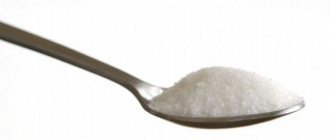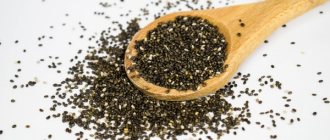2021-03-12 21:11:02 0 18637
Understanding nutritional and sports supplements can be difficult. Many people talk about them as if they were scientists. When talking about something like L-tyrosine, it can seem like people are speaking the language of chemists rather than the language of people who just exercise.
L-tyrosine is a popular dietary supplement that is believed to help with everything from muscle building to weight loss.
It can be assumed that L-tyrosine will play a significant role in building muscle mass. But the facts are that L-tyrosine can do much more. L-tyrosine plays an important role in the body and metabolism. It also increases endurance and improves brain activity.
As we explore the facts about L-Tyrosine and its benefits, we'll look at how effective it can be. This article will provide the most complete information so that you can make an informed decision about whether to take a supplement.
What is L-tyrosine?
L-tyrosine is one of 20 amino acids. L-Tyrosine is a so-called nonessential amino acid, which means it can be synthesized by the body and we don't necessarily need to get L-Tyrosine from food sources.
Chemically, L-tyrosine is called 4-hydroxyphenylalanine. As a nonessential amino acid, L-tyrosine contains a specific side group that gives it a unique molecular structure. The prefix tyros comes from the Greek word meaning cheese. The person who first isolated L-tyrosine found it in casein, which is a byproduct of cheese production.
The main functions of L-tyrosine in the body are to promote the production of catecholamines such as dopamine and adrenaline. L-tyrosine is also important for the proper functioning of the thyroid gland. The connection with thyroid function leads to one of the important uses of L-tyrosine as a supplement for weight loss and weight management.
Best Tyrosine Supplements
Despite the high tyrosine content in foods, the amino acid is often used as a supplement. Mainly to improve physical and mental performance, improve recovery, improve cognitive function and improve mood. Among the most effective and high-quality supplements from well-known brands are:
- NOW L-Tyrosine is the best value for money supplement. Contains 750 mg of purified amino acid per serving;
- L-Tyrosine from Solgar is a quality supplement from one of the most famous brands. It is distinguished by the highest quality and bioavailability. Contains 500 mg per serving. The only downside is the overpriced;
- L-Tyrosine from Source Naturals - has a favorable price-dosage ratio. Includes 500 mg of the substance per serving and is highly bioavailable.
L-Tyrosine from Doctor's Best is a good supplement from a reputable brand. Contains 500 mg per capsule.
What is L-tyrosine needed for?
In the body, L-tyrosine is critical for the production of several important substances. These include:
Dopamine
It is a chemical that regulates the reward centers of the brain and nervous system. It is also important for memory and motor skills.
Adrenaline and norepinephrine
These hormones trigger the body's "fight or flight" response. They prepare you for a perceived attack or threat.
Thyroid hormones
The thyroid gland regulates your entire metabolism.
Melanin
It is a chemical that gives pigment to the skin. Dark-skinned people have more melanin than light-skinned people.
Given these properties of L-tyrosine, it is not surprising that it is also used as a sports supplement.
For example, by increasing dopamine, adrenaline, and norepinephrine levels, you can improve athletic performance.
The effects of L-tyrosine supplementation on neurotransmitters may also potentially improve memory and mental performance.
What is tyrosine needed for?
The tyrosine formula is converted into hormonal components, which have a certain effect on the human condition:
- improve mood and create a feeling of reliability and well-being;
- increase the perception of information;
- help to recover from stressful situations and anxiety;
- improve attention and increase activity;
- participate in building the body (protein synthesis);
- L-tyrosine is needed in hypothyroidism for the normal functioning of the thyroid gland;
- restores strength and increases physical endurance;
- increases metabolism, causing the body to lose weight;
- improves adrenal function;
- partially relieves detoxification of the body (poisoning, slagging);
- relieves the effects of PMS.
What is tyrosine needed for? Photo: xtendhealthasia.com
Interesting fact: Proteins containing tyrosine perform important functions: creating antibodies for immune defense, building muscle fibers, transmitting hereditary information.
The amino acid works in tandem with the thyroid gland, which increases or slows down metabolic processes, controlling body weight. This is a powerful antidepressant that regulates hormonal levels.
Beneficial properties of L-tyrosine:
Improved brain function
Current research suggests that L-tyrosine may help improve brain function. For example, one study that tracked the effects of L-tyrosine supplements on healthy college students found that those who took the supplement showed marked improvements in memory and attention compared to subjects who were given a placebo.
The results of these studies are being studied to see the effects of L-tyrosine on people who are living with cognitive decline as a result of conditions such as Alzheimer's disease.
Increased physical performance
L-Tyrosine has been shown to increase energy and endurance. This is great for anyone who exercises regularly. These results are particularly encouraging for endurance athletes, such as runners.
One study found that people who took L-tyrosine supplements in the form of drinks as part of regular training and exercise had improved endurance. These subjects were able to continue to exercise vigorously even in extreme conditions such as heat.
Help in stressful situations
Researchers have found that L-tyrosine helps improve something called cognitive flexibility. This is the brain's ability to effectively switch between thoughts and tasks. The reason some situations become stressful is because you are forced to quickly switch from one task to another. This leads to overload.
In studies in which people took L-tyrosine supplements and were exposed to test situations requiring cognitive flexibility, people were able to maintain short-term memory and concentration better than those who did not take L-tyrosine.
Another study conducted in women found that those who took L-tyrosine supplements showed improved short-term memory when performing complex tasks compared to those who took a placebo.
These studies have prompted researchers to explore the potential of L-tyrosine for people suffering from mental illness. This study found that L-tyrosine significantly slowed the decline of short-term memory, especially in stressful or challenging situations.
Beneficial properties of tyrosine and its effect on the body
Repeated clinical experiments have proven that the best natural antidepressant is tyrosine.
Scientists have noted a certain pattern according to which the higher the level of tyrosine in the blood, the higher its ability to withstand stress. It is important to note that the production of adrenaline and norepinephrine components is related to the amount of tyrosine in the body.
This amino acid, without the need for additional use of chemicals, controls the amount of tyrosine in the human body and, therefore, reduces the likelihood of depressive disorders, stress, anxiety and irritability.
It is generally accepted that it has a significant effect on the functioning of the peripheral and central nervous systems. Tyrosine components have a significant impact on improving the quality and intensity of training in athletes, reduce the time factor of periods of rest and work, reduce fatigue, and are responsible for the prevention of overtraining.
It was noted that tyrosine molecules are included in the process of production of the thyroid hormonal component, which provides an opportunity to increase the hormonal action of the thyroid gland.
The effects of tyrosine components have been observed to reduce the painful effects of the premenstrual period.
When the required level of tyrosine is found in human cells, an improvement in the functioning of the blood-brain barrier is observed.
It is a barrier between blood flow areas and brain cells. They form membranes, allowing only molecules of certain types of substances to pass through and creating a barrier for other types (bacteria, viruses, proteins, low-molecular toxins). The ability of unwanted elements to penetrate the brain is determined by the strength of the protective barrier of the EBC. Protection of the amino group by chemical elements allows the beneficial amino acid to pass through the barrier protection and protects it from unnecessary substances.
The enormous beneficial effects of tyrosine have been identified in the fight against addiction to caffeine and narcotic drugs, and in the fight against uncontrolled drug use.
Tyrosine is the starting material for the production of certain hormones, such as dopamine, thyroxine, epinephrine and some others.
In addition, as a result of the transformation of tyrosine, the production of melanin pigment is noted.
Signs of tyrosine deficiency in the body
- obesity;
- fast fatiguability;
- state of depression;
- poor resistance to stress;
- sudden mood swings;
- premenstrual pain;
- decreased appetite;
- decreased brain activity;
- manifestations of Parkinson's disease;
- dysfunction of the thyroid gland;
- hyperactivity;
- disruptions in the functioning of the adrenal glands.
Signs of excess tyrosine in the body
- loss of muscle mass;
- manifestation of hypertension;
- decreased body temperature;
- increased heart rate.
Factors influencing the content of the substance in the body
With a healthy, nutritious diet that includes components containing tyrosine, it is possible to maintain the required level of this substance in cells with the help of nutritious food. The recommended dose for a healthy person is 16 mg per 1 kg of body weight.
The second way the body obtains tyrosine is through the conversion of phenylalanine, which occurs in the liver.
Tyrosine for beauty and health
Interest in tyrosine has increased in the beauty industry. This amino acid helps to achieve a deep, dark tan by regulating melanin production. The list of components of lotions and creams for tanning always contains tyrosine components. Although, scientists' opinions on this matter differ.
Recent studies have revealed the positive effects of tyrosine on reducing human fat reserves and healthy weight loss.
Attention! The information is for informational purposes only and is not intended to make a diagnosis or prescribe treatment. Always consult a specialized doctor!
Tatyana Eliseeva chief editor of the Food+ project
Ask a Question
Rating:
1
/10
Votes: 1
Material usefulness 0
Reliability of information 1
Article design 0
Other possible applications:
Much of the research on L-tyrosine is in its early stages. But since L-tyrosine has been found to benefit the body and brain, researchers have begun to study other areas and conditions that can be treated with L-tyrosine supplements. Conditions under which L-tyrosine is promising include:
Alcoholism
Early research suggests that L-tyrosine may help treat alcoholism when taken along with other vitamins and nutrients. There is already evidence that L-tyrosine may help relieve some alcohol withdrawal symptoms.
Consequences of drug use
Preliminary research has shown that L-tyrosine taken in the morning and tryptophan taken at night may help combat withdrawal symptoms and cravings that result from substance use.
Alzheimer's disease and other diseases leading to dementia
Research shows that taking L-tyrosine, 5-hydroxytryptophan in combination with medications helps fight dementia resulting from Alzheimer's disease.
High blood pressure
Some evidence shows a link between taking L-tyrosine and lowering blood pressure.
Excessive daytime sleepiness or narcolepsy
Research has shown that L-tyrosine may fight narcolepsy. Many people who took L-tyrosine experienced reduced symptoms.
Schizophrenia
Research shows that people with schizophrenia respond positively and have fewer symptoms after taking a combination of L-tyrosine and a conventional medication. These results were much better than what doctors observed in people taking only medications.
Wrinkles and sun damage
Research shows that a topical formulation containing L-tyrosine, vitamin C and several other compounds significantly reduces wrinkles and helps reduce the effects of sun exposure.
The results of these studies are encouraging scientists to explore the potential benefits of L-tyrosine for other serious diseases:
- chronic fatigue syndrome;
- erectile dysfunction;
- cardiovascular diseases;
- obesity;
- Parkinson's disease;
- premenstrual syndrome;
- stress;
- giving up drugs.
Deficiency and excess of tyrosine, signs and consequences
An excess (hypertyrosinosis or hypertyrosinosis) or deficiency (hypotyrosinia or hypotyrosinosis) of the amino acid tyrosine in the body can lead to metabolic disorders.
Symptoms of excess and deficiency of tyrosine are nonspecific, which makes diagnosis difficult. When making a diagnosis, it is important to take into account anamnestic data (illnesses suffered the day before, medications taken, being on a diet).
Excess
Excess tyrosine can manifest itself as an imbalance in the work:
- adrenal glands;
- central and peripheral nervous system;
- thyroid gland (hypothyroidism).
Flaw
Amino acid deficiency is characterized by the following symptoms:
- increased activity in children;
- decreased blood pressure (blood pressure);
- decrease in body temperature;
- inhibition of physical and mental activity in adults;
- muscle weakness;
- depression;
- mood swings;
- weight gain with a normal diet;
- restless legs syndrome;
- hair loss;
- increased drowsiness;
- decreased appetite.
Tyrosine deficiency may result from a lack of dietary intake or insufficient formation from phenylalanine.
Hypertyrosinosis is characterized by symptoms that are partly due to increased stimulation of thyroxine production (Graves' disease):
- noticeable decrease in body weight;
- sleep disturbance;
- increased excitability;
- dizziness;
- headaches;
- tachycardia;
- dyspeptic symptoms (lack of appetite, nausea, heartburn, vomiting, increased acidity of gastric juice, hyperacid gastritis or peptic ulcer of the stomach or duodenum).
How quickly is L-tyrosine absorbed?
L-tyrosine from natural food sources enters the body in the same way as all nutrients. To reap the benefits from food sources, you simply need to let your digestive system and metabolism do its thing.
L-Tyrosine from supplements goes directly into your metabolism. As a pre-workout supplement, you will feel the effects within minutes of taking the supplement. When taken as a drink or supplement, L-Tyrosine becomes available almost immediately to the muscles and brain.
Foods rich in tyrosine
The amino acid is found in the meat of mammals, birds and fish, soybeans, peanuts, dairy products, beans, wheat, oatmeal, seafood, and food additives.
| Products name | Mass of tyrosine in grams per 100 g of product |
| Types of meat | 0,34-1,18 |
| Legumes | 0,10-1,06 |
| Cereals | 0,07-0,41 |
| Nuts | 0,51-1,05 |
| Dairy products | 0,11-1,35 |
| Vegetables | 0,02-0,09 |
| Fruits and berries | 0,01-0,10 |
How much L-tyrosine should you take?
The form of L-tyrosine used in supplements is an amino acid called N-acetyl L-tyrosine (NALT). This form is water soluble and easily digestible, but has a low absorption rate. This means you need to take higher doses to get real benefits.
Tyrosine supplements are usually taken in doses ranging from 500 to 2000 mg. Best results are achieved when taken 3-60 minutes before training.
If you are taking L-tyrosine to improve mental performance or increase cognitive flexibility, you may need to take a slightly different dose. “Mental clarity” can be achieved at a dosage of 45-68 mg per pound of body weight. If you weigh 150 pounds (68 kg), then 7-10 grams of L-tyrosine per day is sufficient.
The following is an approximate dosage for some purposes:
- For concentration: 150 mg per kilogram of body weight (mg/kg), divided into two doses after a sleepless night.
- For memory: 150 mg/kg to 300 mg/kg before the exam.
- For mental performance: from 100 mg/kg to 300 mg/kg before performing stressful mental work.
How to take tyrosine
According to clinical studies, the daily intake of tyrosine is no more than 12 g per day, which is approximately 150 mg per 1 kg of body weight. The average dose for healthy people varies between 1-5 g. The use of tyrosine in this amount is quite enough for the amino acid to fully perform its functions.
Increased dosage required:
- if you are overweight;
- abnormalities in the functioning of the thyroid gland;
- tendency to depression;
- hyperactivity.
An even increased dose of tyrosine is recommended for women during PMS and for people who are involved in heavy physical labor or regularly play sports. Also, an increased dose can be taken before any stressful event or activity where concentration and attention are required.
How to take tyrosine correctly:
- To increase absorption by the body, combine with B vitamins: B1, B2, B3, B6, as well as ascorbic acid. In the latter case, the additive can simply be dissolved in orange juice.
- To enhance the effect on the nervous system, combine with decoctions of medicinal herbs: chamomile, mint, valerian, St. John's wort, lemon balm.
We recommend: “Vitamins for athletes: a review indicating benefits and dosage.”
When to take tyrosine during the day: It is better to take it on an empty stomach without food, as it can impair the absorption of the amino acid. It is recommended to take it in the morning, as tyrosine promotes alertness and reduces drowsiness.
The amino acids tyrosine and tryptophan are often taken together. Their complex helps prevent so-called professional burnout and fight stress even more actively.
We advise: “What are the benefits of tryptophan for the body.”
And also: “What is 5-HTP needed for and its connection with tryptophan.”
Dosage and regimen
Adults can safely take 500 to 1000 mg (1-3 tablets) of amino acid per day. For children, the dose is determined by the doctor. Tyrosine should be consumed 20-30 minutes before meals, washed down with sweet and sour (apple or orange) juice. The duration of therapy is from three weeks to 3 months.
Table 4 - Tyrosine dosage for healthy adults depending on exercise intensity
| Conditions | Daily requirement for the substance, g |
| Passive pastime | 0,8-2 |
| Active lifestyle | 1,5-5 |
| One-time dose after a short exercise (1-2 times a week) | 3-6 |
| Severe mental workload (exams, leadership position) | 3-7 |
| Regular exercise | 3-5 once a day before training |
For any of the conditions, the dose should not be exceeded 12 mg per day. In case of digestive problems, the daily dose of the drug is divided into 3-4 doses.
Side effects and allergies
If you use the nutritional supplement correctly, there is no need to worry about side effects, although the possibility of their occurrence cannot be completely excluded. In rare cases, patients complain of nausea, heartburn, headache and fatigue. Older people develop arthralgia. In case of individual intolerance to the substance, allergic reactions often appear in the form of redness of the skin, rash, and itching.
Another side effect of the amino acid may be an increase in thyroxine levels. An increase in hormone concentration can complicate the course of hyperthyroidism and weaken the effectiveness of the therapy used. Therefore, people with an overactive thyroid gland should not take the supplement without consulting a doctor.
Daily requirement
The dosage of the amino acid depends on the therapeutic goals. The scientific literature usually indicates a prophylactic dose for healthy people. It averages 100 mg of the substance per kilogram of weight for an adult.
Dietary supplement manufacturers recommend consuming 500 to 1,500 mg of tyrosine per day, divided into 2-3 doses.
For various diseases, the daily amount of tyrosine may be greater. The required dosage and frequency of use in this case is determined by the doctor.
Table 1 - Daily amount of nutrient for various conditions
| Indications for use | Tyrosine norm |
| Insomnia | 1500 mg in the afternoon and before bed |
| Depression, stress, nervous disorder | From 0.5 to 1 g three times a day |
| Phenylketonuria | The dose is calculated according to the formula - 6 g of substance per 100 g of absorbed protein |
There is an opinion that to achieve the best effect in the treatment of severe forms of depression, a drug based on the nutrient should be taken with herbal infusions of chamomile, mint or St. John's wort.
To accurately determine the level of tyrosine in the body, a urine test for amino acids is performed. An average portion of morning urine is collected in a clean container and sent for examination using liquid chromatography. One day before the test, you should not drink alcohol, and you should avoid taking diuretics 48 hours before the test.
Normal levels of tyrosine (TYR) in adults are in the range of 18-180 mg (10-100 µmol), in children - 0-20 mg or 0-11 µmol.










